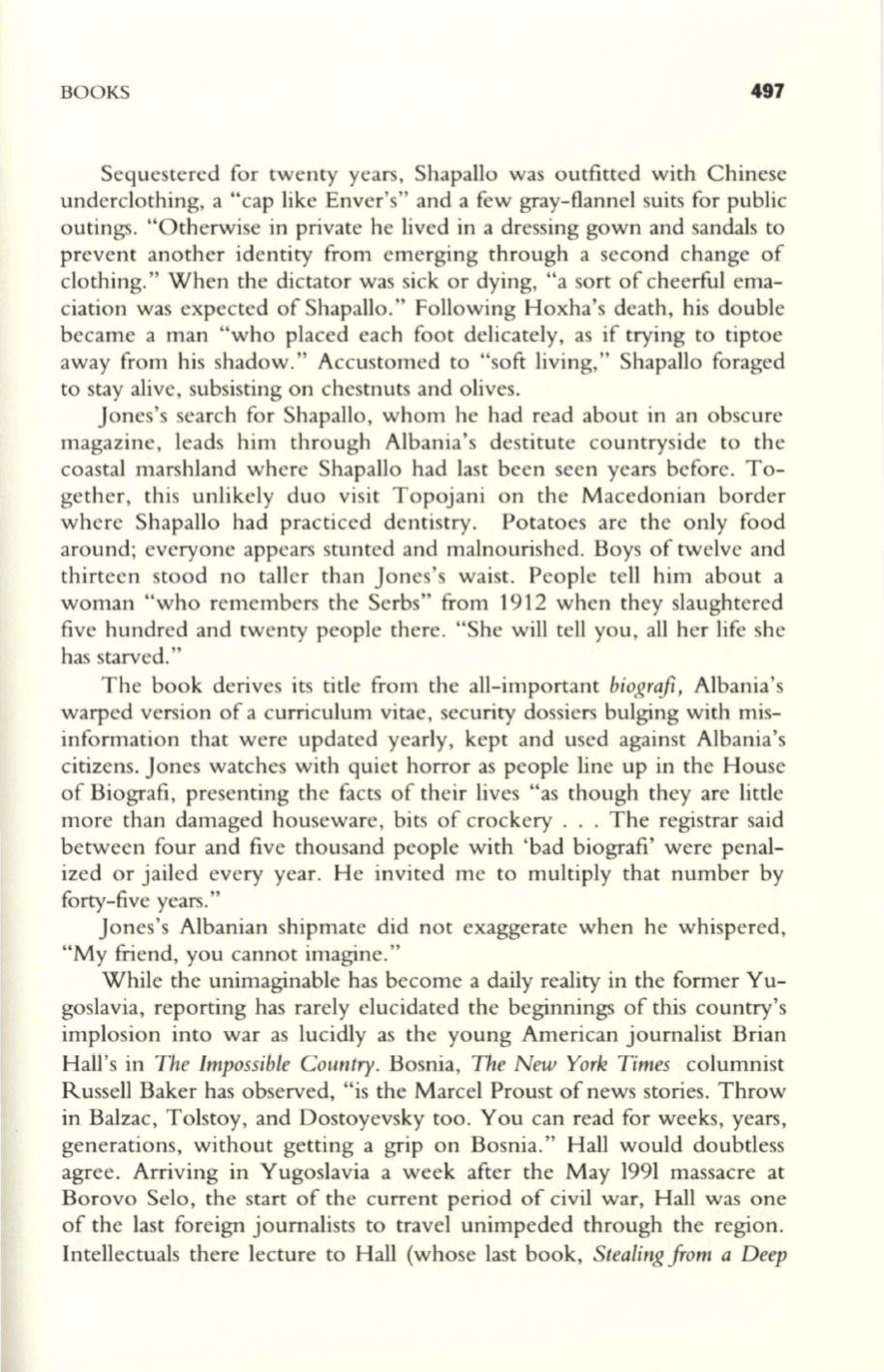
BOOKS
497
Sequestered for twenty years, Shapallo was outfitted with Chinese
underclothing, a "cap like Enver's" and a few gray-flannel suits for public
outings. "Otherwise in private he lived in a dressing gown and sandals to
prevent another identity from emerging through a second change of
clothing." When the dictator was sick or dying, "a sort of cheerful ema–
ciation was expected of Shapallo." Following Hoxha's death, his double
became a man "who placed each foot delicately, as if trying to tiptoe
away from his shadow." Accustomed to "soft living," Shapallo foraged
to stay alive, subsisting on chestnuts and olives.
Jones's search for Shapallo , whom he had read about in an obscure
magazine, leads him through Albania's destitute countryside to the
coastal marshland where Shapallo had last been seen years before. To–
gether, this unlikely duo visit Topojani on the Macedonian border
where Shapallo had practiced dentistry. Potatoes are the only food
around; everyone appears stunted and malnourished. Boys of twelve and
thirteen stood no taller than Jones's waist. People tell him about a
woman "who remembers the Serbs" from 1912 when they slaughtered
five hundred and twenty people there. "She will tell you, all her life she
has starved."
The book derives its title from the all-important
biografi,
Albania's
warped version of a curriculum vitae, security dossiers bulging with mis–
information that were updated yearly, kept and used against Albania's
citizens. Jones watches with quiet horror as people line up in the House
of Biografi, presenting the facts of their lives "as though they are little
more than damaged houseware, bits of crockery ... The registrar said
between four and five thousand people with 'bad biografi' were penal–
ized or jailed every year. He invited me to multiply that number by
forty-five years."
Jones's Albanian shipmate did not exaggerate when he whispered,
"My friend, you cannot imagine ."
While the unimaginable has become a daily reality in the former Yu–
goslavia, reporting has rarely elucidated the beginnings of this country's
implosion into war as lucidly as the young American journalist Brian
Hall's in
The Impossible Country.
Bosnia,
The New York Times
columnist
Russell Baker has observed, "is the Marcel Proust of news stories. Throw
in Balzac, Tolstoy, and Dostoyevsky too. You can read for weeks, years,
generations, without getting a grip on Bosnia." Hall would doubtless
agree. Arriving in Yugoslavia a week after the May 1991 massacre at
Borovo Selo, the start of the current period of civil war, Hall was one
of the last foreign journalists to travel unimpeded through the region.
Intellectuals there lecture to Hall (whose last book,
Stealing from a Deep


